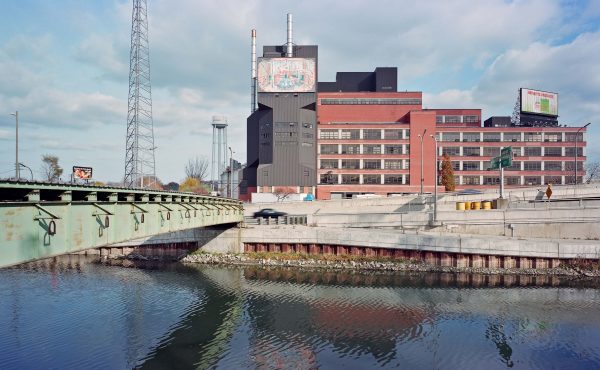
Watching Those Who Remain, a doc about the Mexican families who lose loved ones to American immigration, I kept thinking about a Mike Davis book called Magical Urbanism. It’s a study of the recent ‘Latinization‘ of US cities. Not only are Latino immigrants are invigorating such places as never before, Davis argues, but they are finally piercing the glass ceiling of political disenfranchisement that’s plagued America’s ethnic immigrant communities. “Jose is now the most popular name for baby boys in both California and Texas,†Davis enthuses, “and Southern Californians are more likely to greet each other with ‘Que tal?’ than ‘Hey Dude!’â€
Magical Urbanism is a fundamentally optimistic book (which, if you know Davis’ other work, isn’t saying much) and Those Who Remain is not. Its subjects aren’t broken exactly, but they are hardened, and in many cases quite sad. The reasons their loved ones have emigrated is universally simple: money, opportunity, jobs. Every year, millions of Mexicans “cross over.†Some never return. Some come back, only to leave again. The resignation which accompanies these painfully cyclical lifestyles is hard to fathom. We meet one father, Adriano, as he plans his US departure to fall after the Baptism of his third child. Birthing, his wife tell us, is the only reason he’ll stick around for more than a month. Another father only exists on the end of a telephone, and we watch painfully as his baby daughter’s wander away from the receiver distractedly.
The sense of loss is plainly evident in the landscape. Vacant homes, rusted out tractors, chipped paint, dense overgrowth. But Mexico is a beautiful place, and Those Who Remain captures this fact in breathtaking clarity: the desert skies in interior Yucatan, lush green mountain valleys in Chiapas. Fransciso, a gregarious elderly man, has returned from the US to build his father’s dreamed of rodeo. He believes his rocky meadow is the most beautiful place in the world: “I will die here,†he tell us proudly. The directors Juan Carlos Rulfo and Carlose Hagerman lay the responsibility of the story almost entirely on their interview subject, making it occasionally hard to tell where we are and which family dynamic we’re exploring. For the most part we are spectators their imtimate thoughts — a testament of the patience of the Hagerman and Rulfo.
There are moments of defiant joy in Those Who Remain — memorable scenes like one where townsfolk gather to celebrate Cinqo de Maio despite obviously diminished numbers — but this is clearly the underside to the thesis that Davis explores. Towards the end, Juanita and Pascual — an elderly couple living modestly on their small farm — confess to the deep sadness they have been trying to conceal throughout the piece. “There’s no turning back the clock.†Juanitia says “We spend all our time thinking about our children … about how far away they are.†The same way cities have long drawn their physical energies from residual landscapes — the quarries and clearcuts betraying the inverse geometries of skyscrapers and strip-malls — their populations depend on ‘feeder’ countries like Mexico. Those Who Remain is the merging of both — families within landscapes, both defined by absence. It makes the idea of home a very unsettling one.


2 comments
It’s a very good movie, I quite enjoyed it.
Just one thing, no one is celebrating Cinco de Mayo (watch the typos on the article), they are celebrating Mexican Independence Day, which is on the night of September 15 (the official date is September 16 but everyone celebrates on the eve). Cinco de Mayo is actually a minor holiday in Mexico, it’s not even a bank holiday.
Thanks for telling me that Maria. Yes, there are a few typos in there … no more submitting posts at 2 am!